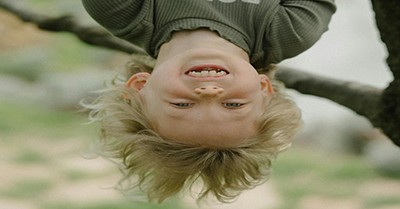“Stay safe.”
“Stay clean.”
“Stay quiet.”
“Do it right.”
Individually, these phrases seem benign. But stacked together, they send a clear message: control comes first, curiosity second. And under that pressure, play shrinks.
Let’s be honest. Much of what limits children’s play isn’t about their needs—it’s about ours.
What Are We Really Protecting?
We say it’s about safety or structure. But is it? Or are we just uneasy with chaos, noise, and not calling the shots?
Control masquerades as care, yet often it reflects adult discomfort more than child wellbeing. We fear risk, mess, unpredictability—and instead of regulating with children, we regulate over them.
It’s time to ask the hard question: Is this about the child, or about me?
Letting Go Without Letting Down
Letting go of control doesn’t mean letting go of responsibility.
It means:
- Trusting children's developmental instincts.
- Holding space for noise, mess, and movement.
- Supporting safe risk, not eliminating it.
- Challenging fear-based phrases that silence exploration.
In trauma-informed practice, this shift isn’t optional—it’s foundational. Children need environments where self-expression isn’t policed, and curiosity isn’t punished.
The Hidden Costs of Adult-Centric Safety
When we prioritize compliance over connection:
- Executive function stalls—children struggle with flexible thinking and problem solving.
- Emotional regulation falters—frustration builds in environments that mute autonomy.
- Cultural identity erodes—messy, joyful play is often where language, movement, and heritage thrive.
Safety shouldn’t mean silence. It should mean co-regulation, presence, and respect.
Towards Reflective Supervision and Ethical Safeguarding
Imagine supervision frameworks where:
- Educators reflect on control triggers.
- Safety plans include co-created boundaries.
- Daily routines embed child-led noise, movement, and risk.
- Documentation includes moments where play challenged adult comfort—and why that mattered.
This is not just protecting children from harm but protecting their right to explore, question, and lead.
Further Reading
Stages Of Play
Kenneth Rubin - Theories Of Play
Schematic Play
Educators' Role In Play
Parent Factsheet: The Importance Of Play In A Child's Life
The Value Of Play







 As an Educator in Australia, your pay rate falls under the Children’s Services Award 2010. This award states the minimum amount that an employer can
As an Educator in Australia, your pay rate falls under the Children’s Services Award 2010. This award states the minimum amount that an employer can When working as a qualified Early Childhood Teacher (with a university degree) within a service, your rate of pay will come from the Educational Services
When working as a qualified Early Childhood Teacher (with a university degree) within a service, your rate of pay will come from the Educational Services When working as a Diploma Qualified Educator your pay rate is from the Children's Services Award 2010. This Award states your minimum rate of pay
When working as a Diploma Qualified Educator your pay rate is from the Children's Services Award 2010. This Award states your minimum rate of pay When working as a Cert 3 Qualified Educator, your pay rate is from the Children's Services Award 2010. This Award states your minimum rate of
When working as a Cert 3 Qualified Educator, your pay rate is from the Children's Services Award 2010. This Award states your minimum rate of Educational Leaders play a crucial role in their early childhood service by ensuring that the educational program aligns with best practices and supports the holistic
Educational Leaders play a crucial role in their early childhood service by ensuring that the educational program aligns with best practices and supports the holistic In early childhood education and care, ratios are more than a technicality—they are a frontline safeguard. Every child deserves responsive supervision, emotional connection, and developmental
In early childhood education and care, ratios are more than a technicality—they are a frontline safeguard. Every child deserves responsive supervision, emotional connection, and developmental With the new national child safety reforms kicking in on 1 September 2025, early childhood services like yours have a real opportunity to lead the
With the new national child safety reforms kicking in on 1 September 2025, early childhood services like yours have a real opportunity to lead the Here’s a comprehensive Mobile Phone and Smart Watch Policy tailored for early childhood education and care (ECEC) services in Australia, aligned with the latest 2025
Here’s a comprehensive Mobile Phone and Smart Watch Policy tailored for early childhood education and care (ECEC) services in Australia, aligned with the latest 2025 The Sea of Fish Challenge is a national initiative that invites children, educators, families, and communities to create and display fish artworks as a symbol
The Sea of Fish Challenge is a national initiative that invites children, educators, families, and communities to create and display fish artworks as a symbol Across the early childhood education and care sector, educators are sounding the alarm: current staffing ratios are insufficient to deliver safe, meaningful, and developmentally appropriate
Across the early childhood education and care sector, educators are sounding the alarm: current staffing ratios are insufficient to deliver safe, meaningful, and developmentally appropriate


